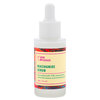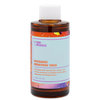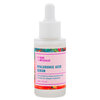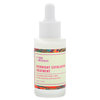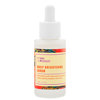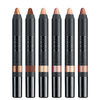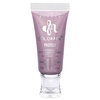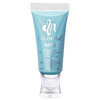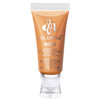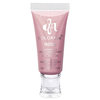
Skin woes can become extreme in the wintertime. Without proper hydration, your surface can become dry, flaky, and itchy. These same problems are also symptoms of a medical condition called eczema. Eczema is characterized as when skin becomes irritated or inflamed. Because the disease can easily flare up during this season, we chatted with dermatologist Joshua Zeichner, M.D., about its causes and cures.
WHAT IS ECZEMA?
"Eczema is a condition characterized by dry, itchy, cracked skin,” says Dr. Zeichner. "When the skin barrier is not working as well as it should be, it is susceptible to allergies and irritations.” In fact, a mutation in a protein called filaggrin—a protein involved in the development of a healthy skin epidermal layer—has been associated with eczema.
"Other causes of eczema include environmental irritation, such as dry winter weather, as well as allergies to compounds your skin comes in contact with, such as fragrances and preservatives. Some patients also have a genetic predisposition for a weak skin barrier." Usually this happens in families with a history of other allergies or asthma.
WHAT DOES ECZEMA LOOK LIKE?
"Skin will appear dry, flaky, and cracked," says Dr. Zeichner. This rash most commonly occurs on the face, back of the knees, wrists, hands, or feet. "Frequently, when eczema improves it leaves behind post-inflammatory pigmentation. This is a spot in the area of the eczema as a result of inflammation interfering with the normal pigment production of the skin." On fair-skinned people these patches will look like a red rash and then turn brown. For darker-skinned people these areas can appear lighter.
WHAT CAN CAUSE A FLARE-UP?
"There are a variety of environmental triggers for eczema," says Dr. Zeichner. "These include dust mites, pet dander, wool and synthetic clothing fibers, harsh soaps and clothing detergents, fragrances, various preservatives in cosmetics, emotional stress, cold dry weather, pollen, hot baths, and cigarette smoking."
IS THERE A CURE?
Although there is no cure, the disease—which is not contagious—can be lessened significantly. The treatment is twofold. "First, improve the skin barrier as much as possible with a daily treatment like Cetaphil Restoraderm Restoring Moisturizer," says Dr. Zeichner. "Then reduce inflammation using moisturizers that contain emollients such as petrolatum, glycerin, or hyaluronic acid.”
WHAT IF YOU NEED INSTANT RELIEF?
"To reduce inflammation, you can try an over-the-counter 1% hydrocortisone ointment," says Dr. Zeichner. "If that is not working after two weeks, touch base with your dermatologist and ask about getting a prescription-strength cortisone cream or noncortisone anti-inflammatory cream." Also, calamine lotion contains pramoxine,” says Dr. Zeichner. Put the lotion in the fridge before applying it so that it feels cool when it goes on. Another classic option? "Try an oral antihistamine such as Benadryl to help alleviate the itchy feeling.”
Beautylish recommends: Cetaphil Restoraderm Restoring Moisturizer

Joshua Zeichner, MD FAAD, is an Assistant Professor at Mount Sinai Medical Center in Manhattan and board-certified in Dermatology.
As the Director of Cosmetic and Clinical Research in the Dermatology Department, Dr. Zeichner is actively involved in clinical trials for all skin conditions including acne, psoriasis, eczema/atopic dermatitis, and actinic keratoses/skin cancer. For more skin care tips, follow Dr. Zeichner on Twitter @JoshZeichnerMD.





